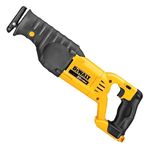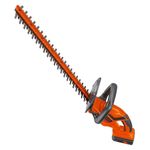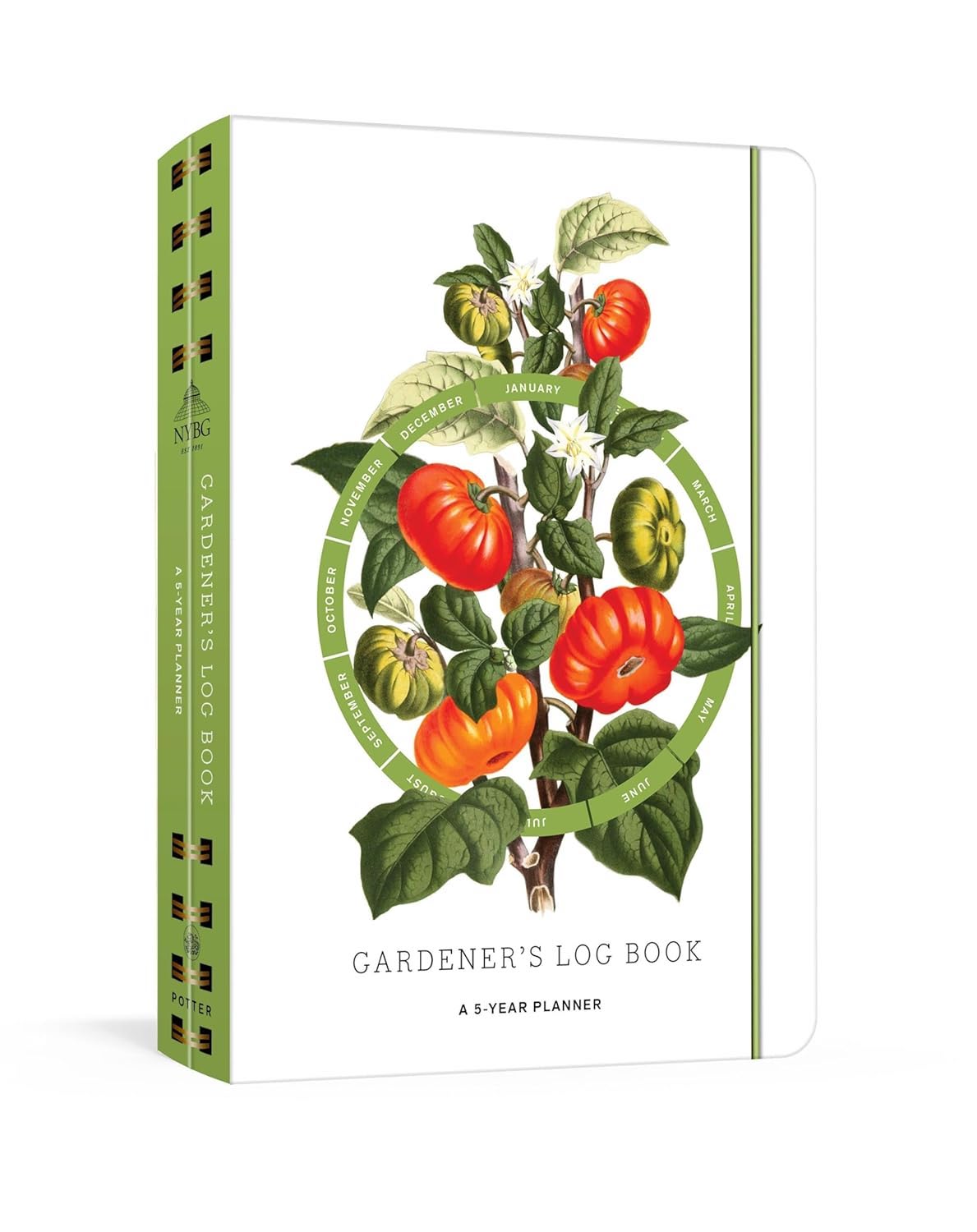Comfortable Monday GPODers!
At the moment Allyson Levy of Hortus Arboretum and Botanical Gardens in Stone Ridge, New York is reminding us to go away the leaves! Allyson has shared her information, and the unbelievable crops her and her accomplice Scott Serrano develop on 21 acres a number of occasions final 12 months: Rising Pawpaws, Particular Fall Crops, Fall is for Purple. Every time she enlightens us to beautiful, and typically uncommon, crops to develop in addition to methods to assist your native surroundings and wildlife together with your backyard.
To be taught extra concerning the unbelievable land they have an inclination, and when you’ll be able to go to, try their web site: hortusgardens.org
As co-director and co-founder of Hortus Arboretum and Botanical Gardens I’m typically requested about how we take care of winterizing the gardens which is not any small process with over 9 acres of cultivated gardens! Nonetheless, for nonprofessionals, even these with small house gardens, chores can appear overwhelming and unending. Nonetheless, now that we’re effectively into December, there are some methods that in the event you didn’t observe this season are value incorporating and placing in your 2025 to-do checklist.
Excessive in your checklist ought to be the mantra “depart the leaves”. It is a good one for certain, giving us gardeners the chance to do different duties that possibly aren’t centered solely on crops. Now that almost all of deciduous tree leaves have fallen, aside from the few marcescent Oak species and a few Beech bushes with leaves nonetheless clinging onto branches, reminders of the season that was. If this “depart the leaves” is a brand new phrase for you, otherwise you simply didn’t get round to taking out your leaf blower, or backyard rake, rejoice, as a result of the backyard world has lastly embraced this slogan since it’s proper consistent with holding a extra naturalistic backyard. For these of us who stay in city or suburban environments shopping for these tall brown “waste” baggage to replenish together with your garden particles to go away on the sidewalk for pickup can now turn out to be a factor of the previous. And even in the event you did tidy up your leaves this previous fall it’s a process that you would be able to take off your 2025 checklist.
 The rationale behind that is easy. Fallen leaves break down over time and add vitamins to your plantings. Even completely different species of oak bushes, infamous for holding their leaves intact as a result of their excessive carbon to nitrogen ranges, are nonetheless useful. Fallen leaves can entice snow, resulting in extra moisture for each tree and perennial roots.
The rationale behind that is easy. Fallen leaves break down over time and add vitamins to your plantings. Even completely different species of oak bushes, infamous for holding their leaves intact as a result of their excessive carbon to nitrogen ranges, are nonetheless useful. Fallen leaves can entice snow, resulting in extra moisture for each tree and perennial roots.
 However what they don’t entice are early spring bulbs, which don’t have any downside rising from the soil regardless of a layering of leaves masking them. Snowdrops (Galanthus spp.), Crocus (Crocus spp.), and Daffodils (Narcissus spp.), together with a complete vary of different early spring bulbs and ephemerals handle to push their approach up by the leaf litter.
However what they don’t entice are early spring bulbs, which don’t have any downside rising from the soil regardless of a layering of leaves masking them. Snowdrops (Galanthus spp.), Crocus (Crocus spp.), and Daffodils (Narcissus spp.), together with a complete vary of different early spring bulbs and ephemerals handle to push their approach up by the leaf litter.
Much more importantly fallen leaves present locations for bugs like moths, butterflies, wasps, and floor beetles to put their eggs in addition to effectively as a spot to overwinter by providing safety from predators and the weather.
Then come early spring while you’re able to “clean-up” you’ll be able to simply handle any massive piles of leaves that haven’t utterly damaged down by flippantly raking them aside so they’re loosened up some however nonetheless stored in place. In the event you require a extra tidy look you’ll be able to collect them as much as put into your compost, the place the leaves can proceed to interrupt down over time. In the event you keep a big backyard, or if the leaves are everywhere you’ll be able to run a mower over them and shred them up, primarily mulching them.
 Okay, so now you’ve one much less chore to do. However what about all of your spent stems and flower heads which can be left within the backyard? Can you permit these in place, too? Sure!! Seeds have many methods for propagation, and wind is usually one of many methods crops do that on their very own. It’s all the time sensible to assemble a number of the seeds in fall to sow your self, however as a result of many native crops should be cold-stratified in an effort to germinate, leaving seeds on the plant and letting Mom Nature do the job is a technique to make sure future crops. After all, wind doesn’t take note of your backyard design and crops might develop far-off from the unique “mom” plant. Above, rabbitbrush (Chrysothamnus spp.) seeds in late fall get disbursed by the wind, however the seed heads stay.
Okay, so now you’ve one much less chore to do. However what about all of your spent stems and flower heads which can be left within the backyard? Can you permit these in place, too? Sure!! Seeds have many methods for propagation, and wind is usually one of many methods crops do that on their very own. It’s all the time sensible to assemble a number of the seeds in fall to sow your self, however as a result of many native crops should be cold-stratified in an effort to germinate, leaving seeds on the plant and letting Mom Nature do the job is a technique to make sure future crops. After all, wind doesn’t take note of your backyard design and crops might develop far-off from the unique “mom” plant. Above, rabbitbrush (Chrysothamnus spp.) seeds in late fall get disbursed by the wind, however the seed heads stay.


Regardless, many flowering crops nonetheless retain the seed heads after the seeds have been strewn, and they are often typically very ornamental as effectively. Above is a Japanese Angelica (Aralia elata, Zones 4–9) seed head earlier than and after its seeds have fallen.
 You may depart your helianthus, echinaceas, symphyotrichum, solidago, and just about any annuals, perennials, grasses, and fruiting branches in place particularly these nonetheless holding onto persistent berries or seed heads. Birds will thanks for it, as will many species of wasps and different bugs that use the hole stems, assume Joe Pye (Eutrochium purpureum, Zones 3–9) for egg-laying and/or overwintering in. The provision of “brown” plant materials is likely one of the most necessary elements for encouraging a rise within the inhabitants of all types of bugs together with bees. Neglect shopping for a “bee lodge” and let nature make them for you. Apart from, there are a lot of flowering crops that present visible curiosity “low season.” Above are viburnum berries for the birds.
You may depart your helianthus, echinaceas, symphyotrichum, solidago, and just about any annuals, perennials, grasses, and fruiting branches in place particularly these nonetheless holding onto persistent berries or seed heads. Birds will thanks for it, as will many species of wasps and different bugs that use the hole stems, assume Joe Pye (Eutrochium purpureum, Zones 3–9) for egg-laying and/or overwintering in. The provision of “brown” plant materials is likely one of the most necessary elements for encouraging a rise within the inhabitants of all types of bugs together with bees. Neglect shopping for a “bee lodge” and let nature make them for you. Apart from, there are a lot of flowering crops that present visible curiosity “low season.” Above are viburnum berries for the birds.
 Clematis seedheads are stunningly decorative and could also be much more visually fascinating, or on the very least final so much longer than the precise flowers. Virgin’s bower (Clematis virginiana, Zones 6–8) seed heads have simply as a lot visible curiosity as their flowers.
Clematis seedheads are stunningly decorative and could also be much more visually fascinating, or on the very least final so much longer than the precise flowers. Virgin’s bower (Clematis virginiana, Zones 6–8) seed heads have simply as a lot visible curiosity as their flowers.
 Late blooming perennials just like the shade-loving Japanese anemone (Anemone hupehensis var. japonica, Zones 5–7) have seed heads that surprisingly persist by winter, with solely a extremely sturdy wind blowing them aside!
Late blooming perennials just like the shade-loving Japanese anemone (Anemone hupehensis var. japonica, Zones 5–7) have seed heads that surprisingly persist by winter, with solely a extremely sturdy wind blowing them aside!
 And in the event you stay in a spot the place it snows, any heavy dump will do the work of bringing down these leftover seed heads and stems for you. Nonetheless that snow dump might be messy with some stems down, others bent over at bizarre angles, whereas some are left unperturbed. Does that imply it’s good to exit and tidy it up??
And in the event you stay in a spot the place it snows, any heavy dump will do the work of bringing down these leftover seed heads and stems for you. Nonetheless that snow dump might be messy with some stems down, others bent over at bizarre angles, whereas some are left unperturbed. Does that imply it’s good to exit and tidy it up??
 The reply is not any. As with the leaves, depart the plant materials alone. Not less than for now. Having stems of varied heights with completely different diameters of stems encourages a wider range of nesting habitats for a bigger quantity of various bugs together with stem-boring moths, and cavity-nesting wasps. Any fallen-over stems supplies safety for ground-dwelling bees too.
The reply is not any. As with the leaves, depart the plant materials alone. Not less than for now. Having stems of varied heights with completely different diameters of stems encourages a wider range of nesting habitats for a bigger quantity of various bugs together with stem-boring moths, and cavity-nesting wasps. Any fallen-over stems supplies safety for ground-dwelling bees too.
Come March or April, relying on the place you reside, you’ve loads of time to scrub up and tidy if that’s your factor. Nonetheless, there’s something you are able to do that’s much more useful, which is to help the entire course of come spring by breaking apart each the standing and fallen stems both by hand or lopper and leaving the now brown materials alone. Consider this chop and drop as a mulch in your soon-to-be rising spring crops. They may don’t have any downside rising up by the plant particles, and are available late spring, you received’t even see that. Plus any insect that’s nonetheless residing within the useless plant materials, or any of their eggs primarily stays in place.
You could even start to do what I’ve began to do, which is in the course of the season utilizing this chop and drop technique when I’m pruning or cleansing up a plant; I’ll lower the branches, stems, and many others., into smaller items and throw them down across the base of the plant, permitting the fabric to interrupt down in place. No want to pull a wheelbarrow or tarp to your compost for this. Simply let the fabric break down in place.
 So, in fact, leaving the leaves, not slicing again flowers, or gathering up all of the seed heads (just like the remaining seed heads of this northern sea oats [Chasmanthium latifolium, Zones 5–9]) simply saved me a number of days of labor as a result of with managing the end-of-the-season duties on the arboretum there’s nonetheless a lot to be finished. Extra on that quickly!
So, in fact, leaving the leaves, not slicing again flowers, or gathering up all of the seed heads (just like the remaining seed heads of this northern sea oats [Chasmanthium latifolium, Zones 5–9]) simply saved me a number of days of labor as a result of with managing the end-of-the-season duties on the arboretum there’s nonetheless a lot to be finished. Extra on that quickly!
Thanks for sharing extra inspiration and data from Hortus, Allyson! You proceed to encourage us to take a look at gardening from a perspective past simply the sweetness that we create. A visit to your wonderful arboretum and botanical backyard is unquestionably on my agenda for spring.
Have a backyard you’d prefer to share?
Have photographs to share? We’d like to see your backyard, a specific assortment of crops you’re keen on, or a beautiful backyard you had the prospect to go to!
To submit, ship 5-10 photographs to [email protected] together with some details about the crops within the photos and the place you took the photographs. We’d love to listen to the place you might be situated, how lengthy you’ve been gardening, successes you might be happy with, failures you discovered from, hopes for the long run, favourite crops, or humorous tales out of your backyard.
Have a cell phone? Tag your photographs on Fb, Instagram or Twitter with #FineGardening!
Do you obtain the GPOD by e-mail but? Enroll right here.
Advantageous Gardening Really useful Merchandise

DeWalt Variable-Pace Cordless Reciprocating Noticed
Advantageous Gardening receives a fee for gadgets bought by hyperlinks on this web site, together with Amazon Associates and different affiliate promoting packages.
You may match quite a lot of blades to this noticed to chop fallen branches or prune bigger limbs from bushes in a pinch. It’s quick, powerful, simple to make use of, and very versatile.
– 18.31 x 6.13 x 4 inches
– 1-1/8-inch stroke size
– Variable pace set off with 0-3000 spm

Black and Decker 22-inch Cordless Hedge Trimmer
Advantageous Gardening receives a fee for gadgets bought by hyperlinks on this web site, together with Amazon Associates and different affiliate promoting packages.
Fast and straightforward to place into operation and is much less noisy and lighter in weight than gas-powered hedge trimmers.
– 38 x 7 x 7 inches
– 6.9 kilos
– 1 Lithium Ion battery required (included)

Gardener’s Log E book from NYBG
Advantageous Gardening receives a fee for gadgets bought by hyperlinks on this web site, together with Amazon Associates and different affiliate promoting packages.
This weatherproof five-year log ebook contains the next options:
· Sturdy waterproof cowl to guard pages from rain and muddy soil
· Lined pages and gridded paper for plotting beds
· 5 years of 12-month bloom and harvest grids for recording what you planted and when
· Authoritative appendices on composting, pruning, pest and illness management, and container gardening
· Helpful reminders by season on fertilizing, mulching, and transplanting
· Area for itemizing your favourite sources and suppliers.
















